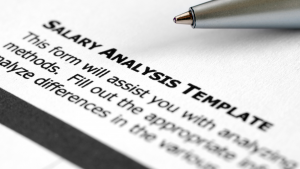You’ve probably heard the term “credit score” bandied about ever since you were in middle school when they taught you how to calculate it. It is the score that companies like Equifax, TransUnion, and Experian compute when they look at your credit report. It is based on factors like your balance, payment history, length of credit history, and the number of times you’ve applied for credit, and other things. Many factors can go into this score, and most of them are out of your control—but someone can check your credit score, and that can impact your view of you.
If you’re like most Americans, you’re concerned about your credit rating and how it impacts your financial success. With average credit ratings around 600, your credit score is the most important number you’ll ever see on a credit report. Your credit score represents how reliable and responsible you are, and it’s the key to unlocking the many benefits of having a credit account. That’s why most lenders and credit card companies use credit scores to make decisions about whether to approve your application for a credit card, loan, mortgage, or insurance.
Credit scores are an important part of your financial life, and, as you might expect, your credit score can affect your overall financial well-being. While most people think that a lower credit score means a lower credit rating, the reality is that the opposite is true: a higher credit score indicates that you can afford to pay more on your credit cards.
Checking your credit score is a necessary part of your financial life. But, there’s a lot of misconceptions about what it means and how it can impact your credit score. Keep reading to learn about the four questions most people have about your credit score and what the numbers mean.
Checking your credit score is essential if you want to get a loan or get a job, but does checking your credit score lower your rating? Unfortunately, no one knows for certain, but if you often check your credit score, you should keep it in the back of your mind. Your credit score is based on how many credit accounts you have open, how long you’ve had them, how much debt you owe, and the interest rates you pay on each one.
For many people, checking their credit score is a regular part of their lives, and there are plenty of credit cards, bank accounts, and loans that require someone to check their credit score before they offer you the service. However, many believe that just because you check your credit score doesn’t mean that it reflects your creditworthiness. If you are one of these people, you may believe that there is no need to check your credit score since you are already aware of how it is calculated.
Checking your credit score is a no-brainer. It is a quick and easy way to determine whether you are in good standing with your credit card usage and making payments on time. However, how often people check their credit score varies. Some people check their credit score once or twice a year, while others will check it weekly or even daily.
Saying that your credit rating might be hurt by checking your credit score is like saying that your stomach will hurt if you eat too many grapes. It’s just not true. Why would someone check their credit rating? Because they want to know if they are getting the best available rates. If not, they can negotiate to get better rates. Or they can use a credit score to protect themselves from bad credit. Or they can use a credit score to ensure they have a good payment history.
Your credit score is a measure that reflects how much you can borrow from lenders using a range of criteria, from your payment record to the length of your credit history to the types of credit you have opened. Your credit score is calculated from these factors and others to provide a quick and easy assessment of your ability to borrow money.




